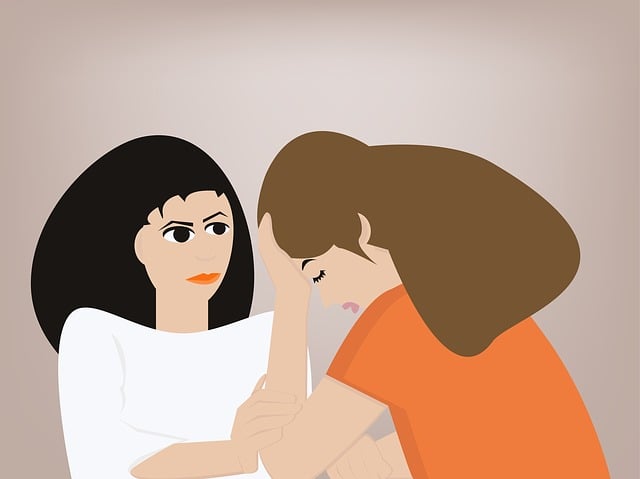Greenwood Village Neuro Disorders Therapy emphasizes the profound impact of media on public perception of neurodisorders, advocating for accurate and empathetic representations. They believe diverse personal stories in media can challenge stereotypes, normalize mental illness experiences, and encourage self-discovery and recovery. Through consulting with mental health professionals, media can portray resilient characters, reduce stigma, and foster understanding. Greenwood Village leads efforts to collaborate with media outlets for impactful public awareness campaigns, promoting mental wellness and challenging stereotypes. Their comprehensive services, educational initiatives, and risk management planning contribute to a more inclusive community.
In today’s media landscape, the representation of mental illness plays a pivotal role in shaping societal perceptions. This article delves into the profound impact of media portrayal on mental health stigma and offers solutions for improvement. We examine the current state of neurodisorder depiction, highlighting common misrepresentations. Greenwood Village Neuro Disorders Therapy serves as a beacon for positive representation, showcasing accurate and empathetic portrayals. Strategies are proposed to foster change, emphasizing collaboration between media and healthcare professionals for healthier narratives.
- Understanding the Impact of Media Portrayal on Mental Health Perception
- The Current State: How Media Often Misrepresents Neurodisorders
- Greenwood Village Neuro Disorders Therapy: A Case for Positive Representation
- Strategies for Promoting Accurate and Empathetic Mental Illness Depictions
- Fostering Change: Collaborating with Media for a Healthier Narrative
Understanding the Impact of Media Portrayal on Mental Health Perception

The media plays a significant role in shaping public perceptions about mental health. Portrayals of individuals with mental illnesses in films, television shows, and news coverage can influence how society understands and treats these conditions. When media platforms depict mental disorders accurately and sensitively, they can foster empathy, reduce stigma, and encourage help-seeking behaviors. Conversely, negative or stereotypical representations may perpetuate misconceptions, leading to further marginalization of those living with neurodisorders. At Greenwood Village Neuro Disorders Therapy, we recognize the power of media in either promoting emotional healing processes or hindering inner strength development.
Accurate media coverage can provide a platform for sharing personal stories, increasing awareness about various mental health conditions, and offering valuable mental wellness journaling exercise guidance. By presenting diverse narratives, media outlets can challenge conventional assumptions and promote the idea that mental illness is not a rare or shameful experience. This shift in perception is crucial for encouraging individuals to seek support, understand their experiences, and embark on journeys of self-discovery and recovery, ultimately enhancing their mental wellness.
The Current State: How Media Often Misrepresents Neurodisorders

In today’s media landscape, neurodisorders like depression, anxiety, and bipolar disorder are often depicted in a way that perpetuates harmful stereotypes. The current state of representation is marked by oversimplification and sensationalism, which fails to capture the nuanced experiences of individuals living with these conditions. Movies and TV shows frequently portray mental illness as either a temporary setback or an extreme, all-encompassing struggle, without exploring the potential for recovery, management, and resilience.
This misrepresentation not only affects public perception but also influences how those dealing with neurodisorders perceive themselves. Greenwood Village Neuro Disorders Therapy emphasizes the importance of accurate representation to foster understanding and reduce stigma. By promoting stories that showcase individuals navigating their mental health journeys while developing coping skills and building resilience, media can contribute to better stress management and improved access to resources for those in need.
Greenwood Village Neuro Disorders Therapy: A Case for Positive Representation

Greenwood Village Neuro Disorders Therapy is a shining example of how positive representation in media can transform public perception about mental wellness. In an industry often plagued by stigmatizing stereotypes, this therapy center challenges the norms through its commitment to accurate and compassionate storytelling. By highlighting the diverse range of services they offer, from individual therapy sessions to group support meetings, Greenwood Village Neuro Disorders Therapy breaks down barriers and encourages open conversations about neurodisorders.
Their approach extends beyond treatment; it encompasses educational initiatives like Mental Wellness Coaching Programs Development and Community Outreach Program Implementation. Furthermore, their rigorous Risk Management Planning for Mental Health Professionals ensures a safe and supportive environment for both patients and practitioners. This holistic strategy not only promotes mental health awareness but also fosters a sense of community, ultimately contributing to a more inclusive and understanding society.
Strategies for Promoting Accurate and Empathetic Mental Illness Depictions

To promote accurate and empathetic mental illness depictions in media, several strategies can be employed. Firstly, Greenwood Village Neuro Disorders Therapy emphasizes the importance of consulting with mental health professionals to ensure the authenticity and sensitivity of portrayals. This includes incorporating real-life experiences and insights from individuals living with various mental health conditions, as well as adhering to evidence-based practices and current research.
Additionally, focusing on the Mind Over Matter Principles can significantly contribute to reducing mental illness stigma. By showcasing characters who exhibit resilience and growth despite their struggles, media platforms can foster a deeper understanding and compassion among viewers. Such narratives not only challenge stereotypes but also encourage conversations around mental health, ultimately supporting Mental Illness Stigma Reduction Efforts.
Fostering Change: Collaborating with Media for a Healthier Narrative

In the pursuit of a healthier narrative around mental illness, collaboration between professionals and media outlets is pivotal. Greenwood Village Neuro Disorders Therapy has been at the forefront of this initiative, advocating for accurate and compassionate representation in popular culture. By engaging with media entities, we aim to challenge stereotypes and foster public awareness campaigns that promote positive thinking and mental wellness. This collaborative approach leverages the power of storytelling to humanize experiences, reduce stigma, and encourage support for those facing mental health challenges.
Through strategic partnerships, Public Awareness Campaigns Development initiatives can be enhanced, ensuring messages resonate with diverse audiences. By integrating authentic narratives into media content, we create a more inclusive and understanding society. This collaboration not only benefits individuals seeking therapy but also contributes to a broader culture that embraces mental wellness as an integral part of overall health. Together, we can revolutionize the way mental illness is portrayed, making it easier for those in need to seek help without fear of judgment.
Media has a profound impact on shaping societal perceptions of mental illness. The current state of representation often perpetuates stereotypes and misinformation, contributing to stigma and misinformed attitudes. However, initiatives like Greenwood Village Neuro Disorders Therapy offer a path forward through positive and accurate depictions. By collaborating with media outlets and implementing strategies for empathetic storytelling, we can foster a healthier narrative that promotes understanding and support for those facing neurodisorders. This collective effort is crucial in challenging existing biases and ensuring a more inclusive and compassionate society.














